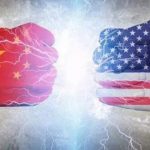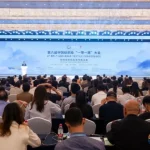Tony Tao
HM & Associates, Australia (Accountants and Business Advisers)
(Presented at a seminar during the Australian International Sourcing Fair 2011)
Clothing & Textiles Industry – Global Prospective
- Clothing and textiles represent about seven per cent of world exports.
- China represents the largest share of world trade in this industry.
- Character of Industry: growing in volume, dropping in unit price
- Growth in volumes of polyester, volumes of natural fibre remain stable.
Key Products of Sourcing from China
Major Category of China Export Products
- Clothing
- Fabrics
- Household textiles
- Fashion accessories
- Garment accessories
- Footwear
Connection with China Manufacturing Company
Pre-sourcing: Sourcing Agent
You can engage sourcing agent in Australia or in China. The fees are generally commission based around 2-10% of purchasing price. Agent’s services include :
- Consulting
- Matchmaking
- Ordering
- Logistics
- Quality control
- Settlement services
Pros & Cons of sourcing agent
Pros :
- Easy to engage
- One stop solution
- Certain degree of reliability
Cons :
- Commission could be too high: reduce profit margin, increase business risk
- Limited supplier options as sourcing agents will have their own preferred suppliers
- Little awareness of Chinese market.
Selective Sourcing
Networking : talk to knowledgeable people who have successfully imported
from China.
It is advisable to participate/attend China Clothing and Textiles Expo. The advantages of this are :
- Pre-selected by CCCT (China Chamber of Commerce for Import and Export of Textiles).
- Reputable companies.
- Products ready for export.
- Willing to explore Australian market, have the HR capacities to do so.
- Face to face meeting & understand the products without trip to China.
Research – use public sources to identify the China exporter and preselect based on years in business, public reporting of revenue and employee sizes to create a prospect supplier’s list.
Non-selective Sourcing Method
Develop a list based on the yellow pages, association directories, government sources etc. Some important links are : the Canton Fair (China Import & Export Fair): www.cantonfair. org.cn; East China Fair: www.ecf.gov. au and a popular website for b2b : www. Alibaba.com
Selecting the Suppliers
What you want?
- Ability to produce the quantity
- On time delivery
- Pricing
- Quality
What you don’t want
- Loss your time, money, and the reputation with your customers
- Go down the path in a complex international legal dispute.
Important elements in ensuring the above are :
- Reference from past trades : Ask suppliers to provide you with most recent trading documents, for reference check.
- Build up strong personal relationship with suppliers
- Utilise the services from CCCT which is a non profit organisation and a leading organization representing exporters and importers of textiles and clothing in China having a membership of more than 12,000 companies across China. CCCT‘s members represent more than 70% of China’s import and export trade in textile and clothing. CCCT acts as a bridge between Chinese textile and clothing exporters and their counterparts in the rest of the world.
Terms of Contract
Specify the following in your contract:
- specifications
- quantity
- quality
- price
- delivery port and payment term
- liability for breach of contract, and
- dispute settlement.
Regarding quality, following points should be noted :
- Australia does not have its own quality standard, industry standard is applicable.
- Some buyers (Target) require ISO standard, such as ISO 9001 Certificate or specific ISO certificate.
- Some buyers (Aldi) use OKTEX 100 standard, tested for harmful substances.
While finalising the terms of contract it is important to check the business licence and the name of legal representative on the contract. Also, specify the arbitration clause and make sure to select at least one foreign arbitrator. The most popular business arbitration entity in China is the China International Economic and Trade Arbitration Commission (CIETAC in English). The contract needs to be prepared in both English and Chinese and English language version governs in the event of a dispute. As far as the governing law is concerned the Australian Jurisdiction should be preferred.
Pricing Method
- CIF : Cost, Insurance & Freight, suitable for small & start up business.
- FOB : Free On Board, suitable for large and experienced importers.
- CNF : Cost & Freight, has become very popular
Payment Terms
TT
The advantages are :
- Less cost
- Fast
- Suitable for repeated business
LC (Letter of Credit)
- Relatively expensive
- Safe
- For low margin supplier, they may be not willing to accept LC
- Suitable for initial business engagement., followed by TT transactions.
Risk Management
Building up strong personal relationship with suppliers is very important in China. In Chinese, it is called ‘Guan Xi’.
Guan Xi (Relationship) is the most important Chinese business culture. Getting the Right“GuanXi “ makes all the difference in ensuring that business will be successful. The written commercial contract is secondary to “GuanXi”.
Westerners build transactions and if successful, a relationship will ensure but Chinese build a relationship and if successful, commercial transactions will follow. “GuanXi” is hard to form, but is long lasting. In China, “Guan Xi” is considered to be like a bank deposit, more money you have, the more money the bank is prepared to lend you. Once you get your “Guan Xi” bank balance to a high level, your risk is reduced. Therefore, if you are new to china, you can borrow “GuanXi” to make (earn) “GuanXi”.
How to develop Guan Xi (Relationship) in China?
- A network of relationships to support one another, “if you scratch my back, I will scratch yours”.
- Need time to make friends and establish close relationship with others, such as suppliers, salesmen, shippers, officials, bankers) and people dear to their hearts. This can be achieved by :
- constant social interaction
- doing small or large favours
- small gifts
- fulfilling your early promises
- building up a good, reliable reputation
- Your goal is to build a network of people close to you, a phone call away that can help you when in need.
QC (Quality Control)
- Engage a trusted local person to oversee the productions, the estimated cost: ~RMB 5,000/m or commission based.
- Make inspection by yourself: at least 1-2 times during the production stages and the final inspection before shipment.
- Engage QC agent, such as SGS and CCIC.
Initial Deposit
- Small initial deposit : 10 – 30%.
- Refundable as per contract, but hard to enforce.
- The final payment: before shipment, after the final inspection.
Case Study
In 2006, our client engaged a supplier in Henan province to supply premier quality beach towels. The first inspection of packaging found that the supplier mixed premier quality with standard quality.
As per contract, the supplier replaced it with all premier quality beach towels and agreed that our client can randomly unpack up to 10% of stock for 2nd inspection. Our client did 2nd inspection 5 days before discharge of goods to the port, all ok.
On arrival, our client found the goods had been filled with standard quality beach towels. The supplier refused to accept the responsibility and cause a huge loss to our client.
Lessons from Case Study
- Engage the supplier without background checking.
- Should be alerted when the quality issue was detected in the first inspection.
- Engage a trusted person to supervise the packaging process.
- The final inspection should be conducted right before the goods leave the factory.
About the Author
 Tony is a senior member of the HM & Associates team and has been with the practice for several years. His qualifications include a Diploma of Financial Services, a Bachelor of Science and a Post Graduate diploma in Accounting. He is also a member of the CPA as well as an associate member of the TIA.
Tony is a senior member of the HM & Associates team and has been with the practice for several years. His qualifications include a Diploma of Financial Services, a Bachelor of Science and a Post Graduate diploma in Accounting. He is also a member of the CPA as well as an associate member of the TIA.
Tony has a fine analytical mind and is a superb communicator. Although an expert across all areas of the business, Tony specialises in Corporate Services including valuation and risk, Self Managed Superannuation Funds, Pension & Retirement Planning, Estate Planning, trust structure, small business CGT concession, tax on structured products of share investment (such as margin lending, instalment warrants, etc.) and business valuation.





